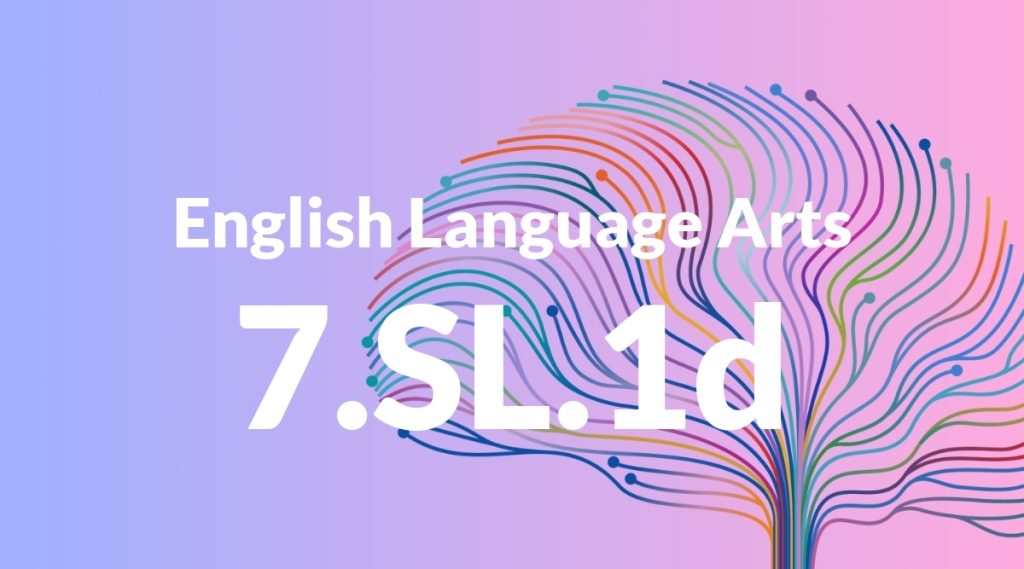Standard: 7.SL.1d – Acknowledge new information expressed by others and, when warranted, modify their own views.
Grade level: Grade 7
Subject: English Language Arts
Domain: Speaking & Listening
Teacher Overview
This standard emphasizes the importance of active listening and being open to new information. It encourages students to consider others’ perspectives and, when necessary, adjust their own views. Mastering this skill is crucial for effective communication and collaboration. Students should already know how to listen actively and express their thoughts clearly. They should also understand the basics of respectful communication.
After mastering this standard, students will be able to engage in more complex discussions, integrate various perspectives, and demonstrate advanced critical thinking skills.
Common Misconception 1
Some students might think they have to agree with all new information they hear. This is incorrect because acknowledging information is about understanding it, not necessarily agreeing with it.
Intervention 1
Use role-playing activities where students practice acknowledging information without agreeing with it. Provide clear examples and non-examples.
Common Misconception 2
Another common misconception is that changing one’s view is a sign of weakness. This is incorrect because it actually shows a willingness to grow and learn.
Intervention 2
Highlight historical figures or leaders who changed their views based on new information, showing it as a positive trait.
Prerequisite Knowledge
Students should have a basic understanding of respectful communication, active listening skills, and the ability to express their own ideas clearly.
Subsequent Knowledge
Students will develop advanced critical thinking skills, the ability to engage in complex discussions, and the capacity to integrate diverse perspectives into their viewpoints.
Instructional Activities
- Role-playing scenarios
- Group discussions
- Debate sessions
- Peer review exercises
- Reflective journaling
- Listening exercises
- Case studies




